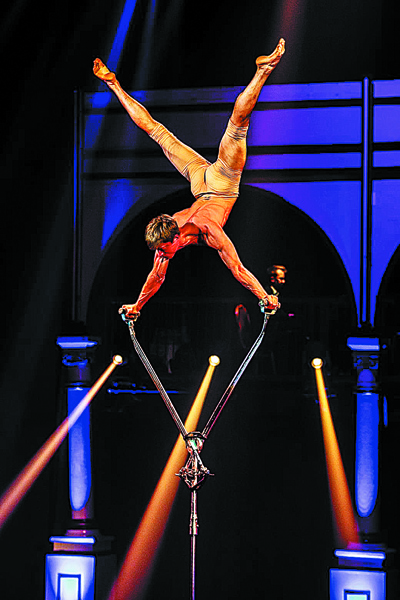

They will disinfect public areas and conduct emergency drills in advance, with ambulances and medical workers on-site. For the opening and closing ceremonies, performers and audiences will undergo temperature checks and scan QR codes to show their travel history and health status.
Nine experts from home and abroad will conduct online discussions in a forum to exchange views about the development of the circus industry amid the global COVID-19 pandemic.
Wang Rongli, deputy head of Hebei provincial culture and tourism department, says it will promote the festival online via both traditional and social media.
It will cooperate with short video platforms to promote the online galas and invite veteran circus artists to perform online, such as displaying magic tricks, and communicate with viewers.
She says the flexibility of online broadcasting allows audiences to enjoy acrobatic shows that require large installations of equipment, which were previously difficult to transport overseas. For example, the Russian acrobats will perform on a specially designed tank.
"These acrobatic shows are combined with modern aesthetics and arts, and are a real eye-opener. There are breathtaking and challenging acrobatics, as well as touching stories showcased via body movements," she says.
In 2006, the acrobatics in Wuqiao county, Cangzhou city, was added to the national list of intangible cultural heritage due to its deep-rooted history that dates back to the Warring States Period (475-221 BC).